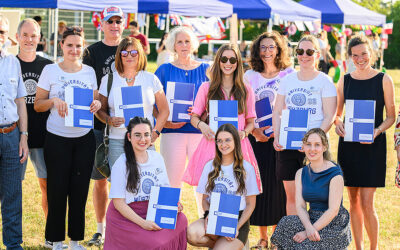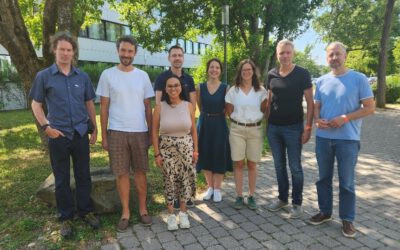
In the test version, WUEMoCA provides information on land use, crop yields for cotton and wheat, and land use intensity – as shown here for the region around Tashkent and Fergana.
On 10 December 2015, the first National WUEMoCA (“Water Use Efficiency Monitor in Central Asia”) User Forum was held in Tashkent (Uzbekistan). The meeting gathered 20 representatives from the Basin Water Organisations Amudarya and Syrdarya, Basin Irrigation System Administrations, Irrigation System Administrations, and research institutions from all over Uzbekistan. Researchers and WUEMoCA developers from Wuerzburg University and SIC ICWC presented the preliminary version of the WUEMoCA web-tool, and discussed the specific requirements by users in irrigation management organisations.
WUEMoCA is an online GIS-based tool for the regional monitoring of irrigated areas in Central Asia. The tool is being developed by Wuerzburg University in cooperation with SIC ICWC in the frame of CAWa phase III. It contains detailed annual maps of land use and crop yields based on openly accessible medium-resolution optical satellite data (MODIS, and for pilot regions Landsat) for the period after year 2000. In the mid-term, automated processing of newly incoming data will allow for the operational use of this tool in land and water management institutions across Central Asia. Potential future applications include assessments of marginal lands with low productivity, the intensity of land use, the early estimation of harvest shortfalls, and the assessment of water use efficiencies.
Try the test version of the WUEMoCA tool with first results and functionalities!
For further reading please be referred to the CAWa project webpage.







